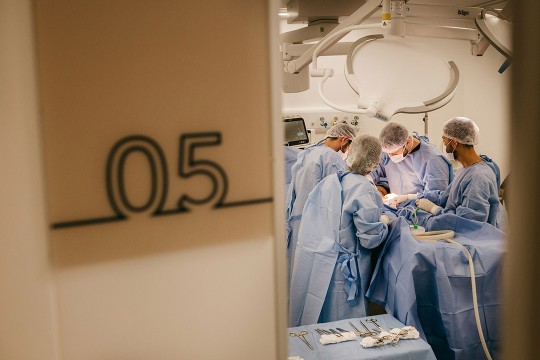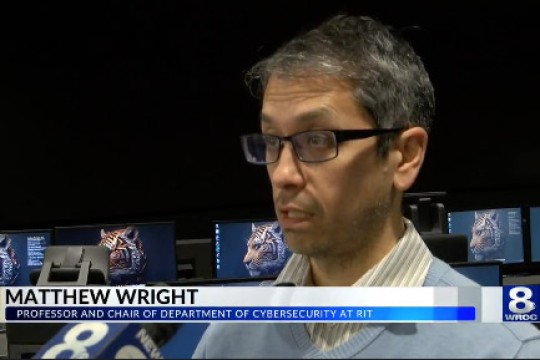November 21, 2024
by Scott Bureau

Illustration by John W. Tomac
View the full story at https://www.rit.edu/news/real-or-fake
Recommended News
December 9, 2024

The health insurance industry ought to be nonprofit
An essay by Amit Batabyal, the Arthur J. Gosnell Professor of Economics and interim head of the Department of Sustainability, published by the Rochester Beacon.
December 9, 2024

WITR hosts President Munson to discuss range of topics
The first “Ask Munson” episode of the academic year will be on WITR-FM (89.7) at 1 p.m. Thursday, Dec. 12. The broadcast is part of an ongoing series that has been a tradition of the President’s Office for two decades.
December 9, 2024

‘Be curious:’ Rochester native speaks on continued 'Jeopardy!' success
WROC-TV talks to David Bond, retired director of Sponsored Research Services, about his Jeopardy appearance.
December 9, 2024

Deepfakes: Why we’re seeing more of them and how to differentiate reality from fiction
WROC-TV speaks to Matthew Wright, endowed professor and department chair in the Golisano College of Computing and Information Sciences, and Computing and information sciences Ph.D. student Y. Kelly Wu about identifying deepfakes.













